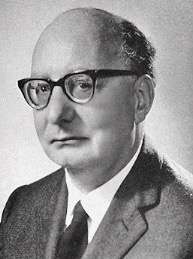Oronzo Reale
Oronzo Reale (24 October 1902 – 14 July 1988)[1] was an Italian politician, who served as justice minister in the 1960s and 1970s.
Oronzo Reale | |
|---|---|
 | |
| Minister of Justice | |
| In office 23 November 1974 – 12 February 1976 | |
| Prime Minister | Aldo Moro |
| Preceded by | Mario Zagari |
| Succeeded by | Francesco Paolo Bonifacio |
| In office 27 March 1970 – 6 March 1971 | |
| Prime Minister | Mariano Rumor Emilio Colombo |
| Preceded by | Silvio Gava |
| Succeeded by | Emilio Colombo |
| In office 4 December 1963 – 24 June 1968 | |
| Prime Minister | Aldo Moro |
| Preceded by | Giacinto Bosco |
| Succeeded by | Guido Gonella |
| Personal details | |
| Born | 24 October 1902 Lecce |
| Died | 14 July 1988 (aged 85) Rome |
| Nationality | Italian |
| Political party | Italian Republican Party |
Biography
Reale was born in 1902.[2]
Reale was a member and the head of the Republican Party.[3][4] He served as the secretary of the party.[5] In the 1970s he tried the French model to reorganize the party for which he set up a committee.[6]
Reale also assumed cabinet posts. On 4 December 1963, he became justice minister of Italy.[2] He was reappointed justice minister to the coalition government led by prime minister Aldo Moro on 24 February 1966.[7] His term lasted until 24 June 1968.[2] Then Reale served as finance minister from 12 December 1968 to 5 August 1969.[2]
He was secondly appointed justice minister on 27 March 1970.[2] His term ended in March 1971.[4] His third and last term as justice minister was from 23 November 1974 to 12 February 1976.[2] During his third term as justice minister, Reale developed a public law order, called Legge Reale or more formally public law order 152, and introduced it on 22 May 1975 as a response to bombings organized by right-wing groups in Brescia.[8] It expanded the powers of Italian security forces.[8][9]
Reale died on 14 July 1988, aged 85.[2]
References
- http://www.treccani.it/enciclopedia/oronzo-reale_(Dizionario-Biografico)/
- "Italian ministries". Rulers. Retrieved 19 April 2013.
- "Small party quits Italy coalition". The Pittsburgh Press. Rome. UPI. 28 February 1971. Retrieved 19 April 2013.
- Robb, Inez (2 July 1963). "Romans talked dryly with JFK spy case forces". The Pittsburgh Press. Retrieved 19 April 2013.
- Norman Kogan (1963). The Politics of Italian Foreign Policy. New York: Praeger. Retrieved 3 January 2014. – via Questia (subscription required)
- Leonard Weinberg (1995). The transformation of Italian communism. Transaction Publishers. p. 33. ISBN 978-1-4128-4030-9. Retrieved 27 April 2013.
- "Italian crisis ends under new coalition". The Montreal Gazette. Rome. Reuters. 24 February 1966. Retrieved 19 April 2013.
- Richard L. Clutterbuck (1990). Terrorism, Drugs, and Crime in Europe: After 1992. Routledge. p. 31. ISBN 978-0-415-05443-0. Retrieved 19 April 2013.
- Paul Wilkinson (28 January 2011). Terrorism Versus Democracy: The Liberal State Response. Taylor & Francis. p. 80. ISBN 978-1-136-83546-9. Retrieved 19 April 2013.